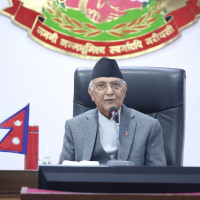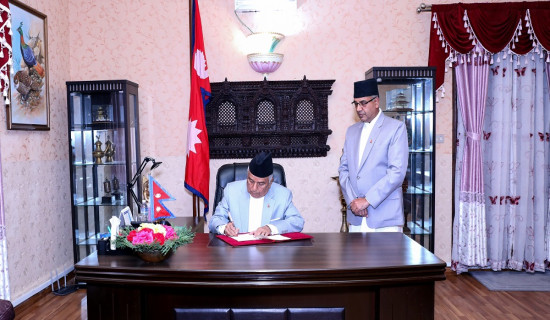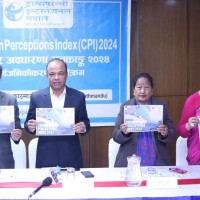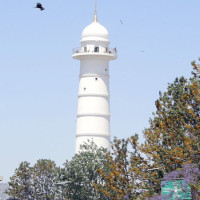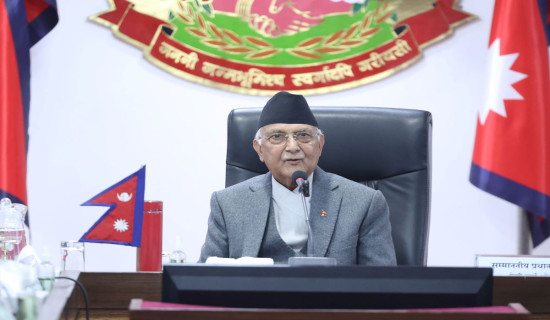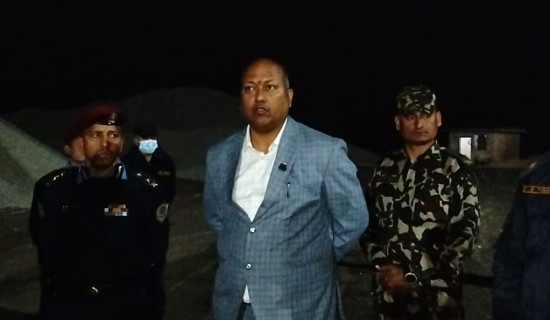- Tuesday, 11 February 2025
Silichong farmer getting good income from tomato cultivation
By Dhyan Kulung,Sankhuwasabha, Mar. 5: Two years ago, Binod Rai of Silichong Rural Municipality-4, of Mangtewa, Sankhuwasabha district, started tomato farming after watching a video on YouTube.
Rai started tomato farming by getting all the information about farming techniques and care from YouTube and now has started making an annual income of Rs. 800,000.
Although he started farming in the village, he could not find market, and then he started farming by renting land in the district headquarters of Khandbari Municipality-3.
He is now producing tomatoes commercially by taking 10 ropanies of land on lease paying Rs. 50,000 per year.
Even though he initially got all the information from YouTube for farming, he said he had recently started taking advice from agricultural technicians.
Rai has also reared chickens and pigs for manure required for agriculture.
He said that additional income is also generated from the sale of chicken and pigs. Rai said that currently 9,000 to 10,000 kilograms of tomatoes are produced in a year.
According to him, he planted tomatoes of the Srijana variety and this variety of tomato started giving fruit after three months of planting.
Farmer Rai shared his experience that the plant once planted will give regular fruits for a year after receiving good care.
He said that the plants give yield for a long time if we can care for them by giving good manure, irrigation, and removal of unnecessary stems.
According to him, the produced tomatoes are sold in the Khandbari market.
He said that tomatoes are sold at Khandbari weekly market every Saturday and Wednesday. Some traders arrive at the field to buy tomatoes, he informed.
He said that the businessmen who buy huge quantities are charged low costs and those who take small amounts are charged full price. At present, the price of tomato in Khandbari market is Rs. 85 per kg.
Rai said that after making a good initial investment, it will not cost much the second time.
In the beginning, it will be spent in the construction of tunnels, irrigation systems and the purchase of digging equipment, he said.
He said that once the tunnel is built, it will last for 12 years and there is no need to buy the equipment again and again.
According to Rai, the farmer should be involved in this sector as there is a good income from agricultural work in Nepal.
He suggested that it would be better for the youth to become commercial farmers than to remain unemployed.




